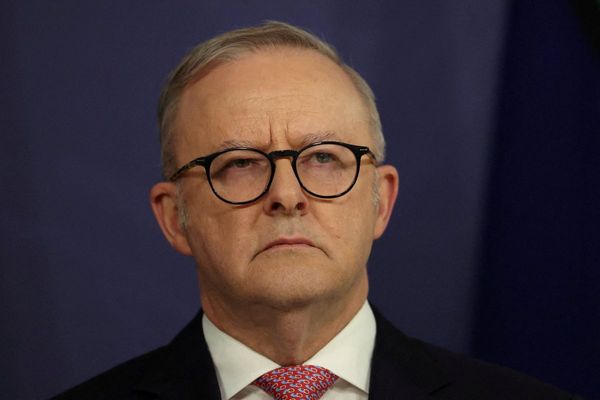So was the Ministry of Defence a winner or a loser in Rachel Reeves’s spending review? Or, more pointedly, is the defence of the realm one of “Labour’s choices”?
The chancellor’s statement was broadly well-received, especially in her own ranks. Some opposition parties’ objections had something of a theatrical air to them, because arguing against more money for public services doesn’t come naturally to any practising democratic politician.
However, it has to be said that the chancellor has framed her plans for spending on defence in the coming years with some skilful legerdemain. She is both spending less than she claims, and, more importantly, far too little to honour Britain’s international commitments and deter Russian interference and aggression.
Even on the most kindly interpretation of her figures, she will only bring defence expenditure as a percentage of GDP up to 2.6 per cent by 2027, and there it will stay until the end of this parliament. Her colleague, John Healey, has spoken with confidence about UK defence spending reaching the 3 per cent mark in the next parliament.
But Ms Reeves has published no path to get there, and she leaves the distinct impression that she has an almost Corbynesque aversion to spending money on the military. In any case, it will soon cause trouble.
The prime minister himself must be concerned about how he’s going to spin the numbers as he prepares to face Donald Trump at the Nato summit in The Hague later this month. After all, the US president has demanded that Nato allies spend as much as 5 per cent of their national income on defence, but, it is rumoured, would settle for 3.5 per cent.
Either way, not only is the UK way off the mark but, since Ms Reeves delivered her plans, it shows no intention of escalating its commitment and making what America would consider a fair contribution to European defence. That will do nothing to secure US commitment to European security – surely an overriding priority for Sir Keir Starmer.
More to the point, neither will it impress Vladimir Putin, nor reassure Volodymyr Zelensky. Sir Keir talks a lot about the “coalition of the willing”, but it’s not entirely clear that his chancellor is willing to do her bit as well.
It is deeply unsatisfactory. In the first place, much of the immediate boost to spending comes directly as a transfer from the overseas aid budget. This may make mathematical sense, but it assumes, so dangerously, that the soft power and conflict prevention that the British aid effort represented was entirely dispensable.
Rather more slyly, Ms Reeves has lumped all kinds of other vaguely relevant spending into the defence budget that really shouldn’t be there, such as the intelligence agencies, aid to Ukraine, and parts of the Foreign Office budget. According to the former defence secretary Sir Ben Wallace, the real UK commitment to defence on the definition laid down by Nato amounts to 2.37 per cent – actually below the claims Sir Keir makes about it.
No wonder the Americans are telling the British to forget about the Aukus (Australia-UK-US) pact and any “Global Britain” pretensions in the Indo-Pacific region, and concentrate on their own continent. If advisers such as US defence secretary Pete Hegseth, or anglophobe vice-president JD Vance, suggest that the perfidious British are trying to fool America, President Trump’s so far warm relationship with Sir Keir will turn icy remarkably quickly.
The plain fact is that Britain is underprepared for the task not of fighting a war but of deterring a European conflict, which has to be the goal. Even now, evidenced in Ms Reeves’s spending plans and in the strategic defence review, there is a sense of unreality about the White House and its America First policy. It is as if a future without the US defence umbrella is so awful, it cannot even be contemplated – that Britain and other European nations can continue to pay lip service to American demands, with no real impact on the commitment to defend even Nato’s smallest members unconditionally, as Article 5 of the North Atlantic Treaty requires.
But America has switched sides on Ukraine, Mr Trump seems infinitely sympathetic towards Russian ambitions, and clearly indicated that keeping Europe free is now a more transactional and contingent affair. The only hope of keeping the US as a guarantor of British independence is to pay for the privilege.
Sir Keir needs to be a little more insistent with his chancellor about the changing facts of geopolitical life.
Look away, Sir Keir! Labour’s bible has given its verdict on you
Yes, ‘Renewal’ Reeves needs to raise taxes – but how will she pull it off?
Roll up, roll up for the Rachel Reeves buy now, pay later spending review
There may be trouble ahead, but Labour should stick to the plan for national renewal
This vision for Britain’s nuclear future is to be warmly welcomed
Rachel Reeves may have U-turned on winter fuel, but her problems are far from over







